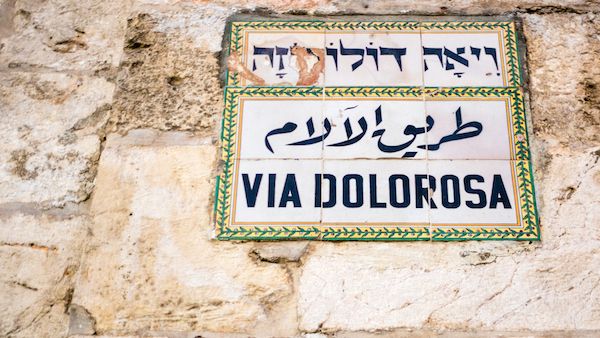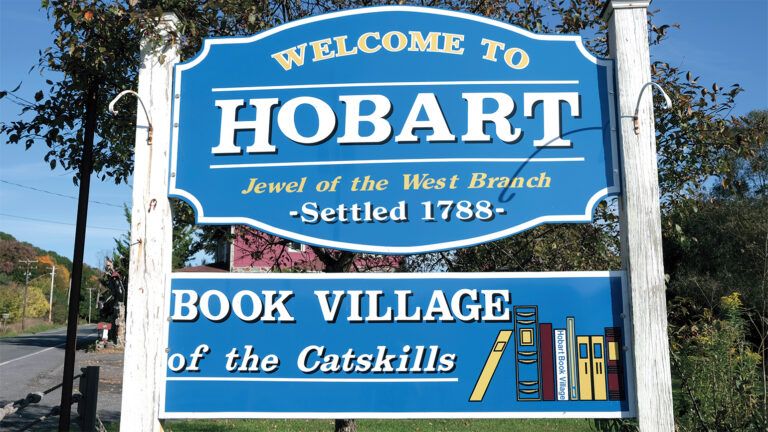Here is Edward Grinnan’s Editor’s Note to the March 2016 issue of Guideposts. If you’d like to subscribe, click here.
A few years ago I went on a Guideposts-sponsored trip to the Holy Land. We toured historic Christian sites like Ephesus, the ruins of the marketplace where Paul preached in Corinth, and the site where Jesus performed his first public miracle at Cana.
For me the highlight of the trip—besides the Guideposts readers I had the great pleasure of traveling with—was walking the Via Dolorosa in the Old City of Jerusalem, the ancient cobbled street down which Jesus struggled so painfully with the cross he was to be crucified on, made to carry it nearly half a mile from the Praetorium to Calvary.
The name Via Dolorosa means “Way of Sorrows.” Along that route are the 14 Stations of the Cross. Medallions on the street mark the moments of Christ’s suffering.
The final four are inside the Church of the Holy Sepulchre. Seeing them in the context of the actual path Jesus is thought to have followed gave them a meaning far beyond anything I’d known before. Which was good.
TRAVEL TO SOUTHERN ITALY & THE AMALFI COAST WITH GUIDEPOSTS! DON’T MISS THIS AMAZING 12-DAY TOUR.
My first encounter with the Stations of the Cross was when I was an altar boy at St. Owen’s. Holy Week was a busy time, and as I became a veteran on the altar I was often pressed into service for the Stations. An honor, I suppose, if you didn’t mind sore knees for Easter.
We knelt at each station while Father Walling said the prayers. Slowly. I was the goalie on our neighborhood hockey team and I would wonder as I knelt for those interminable minutes if there was a way I could conceal my big Cooper goalie pads under my cassock.
We dared not sit back on our heels. That would earn us a whispered admonition from Father or a nudge of his shoe. He always seemed to linger a bit at the sixth station, where Saint Veronica wipes the bloody face of Jesus with a cloth. To this day it’s my favorite station, and I lingered by its marker on the Via Dolorosa.
If we altar boys complained about our knees, Father Walling would remind us of the sacrificial suffering of Christ. I don’t know if that penetrated my 12-year-old skull, but many years later in Jerusalem, it rang true.






